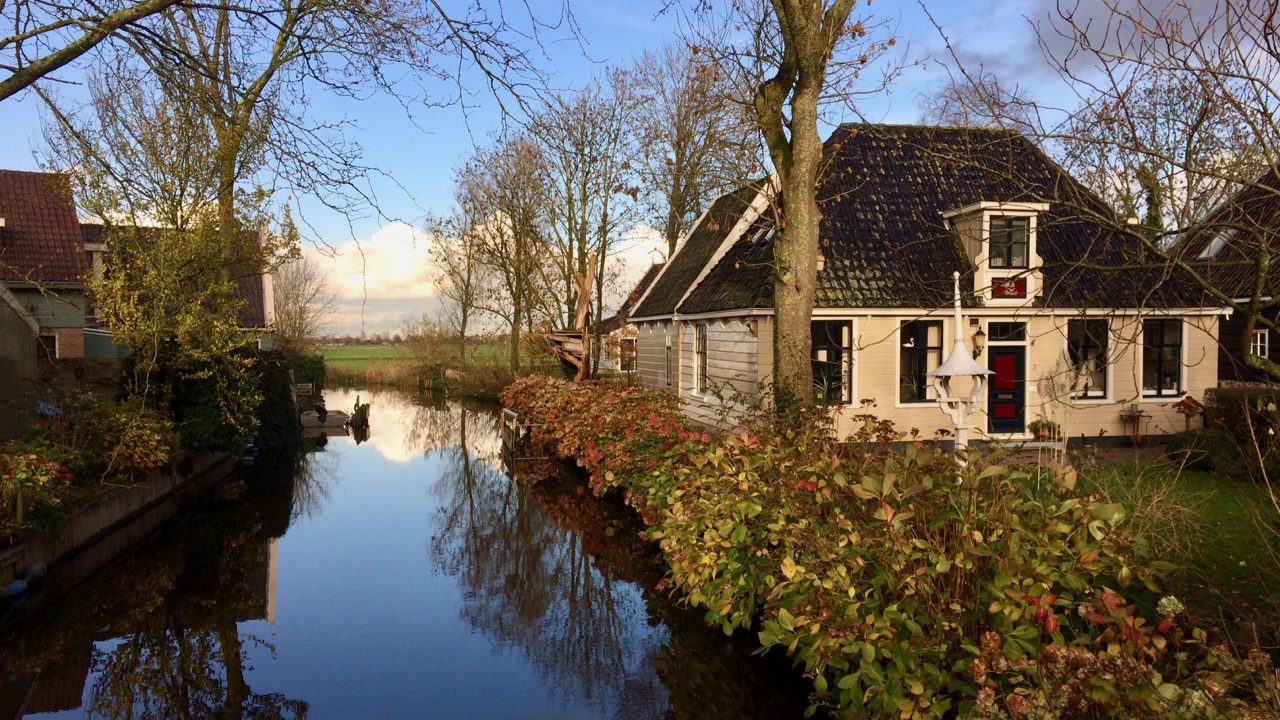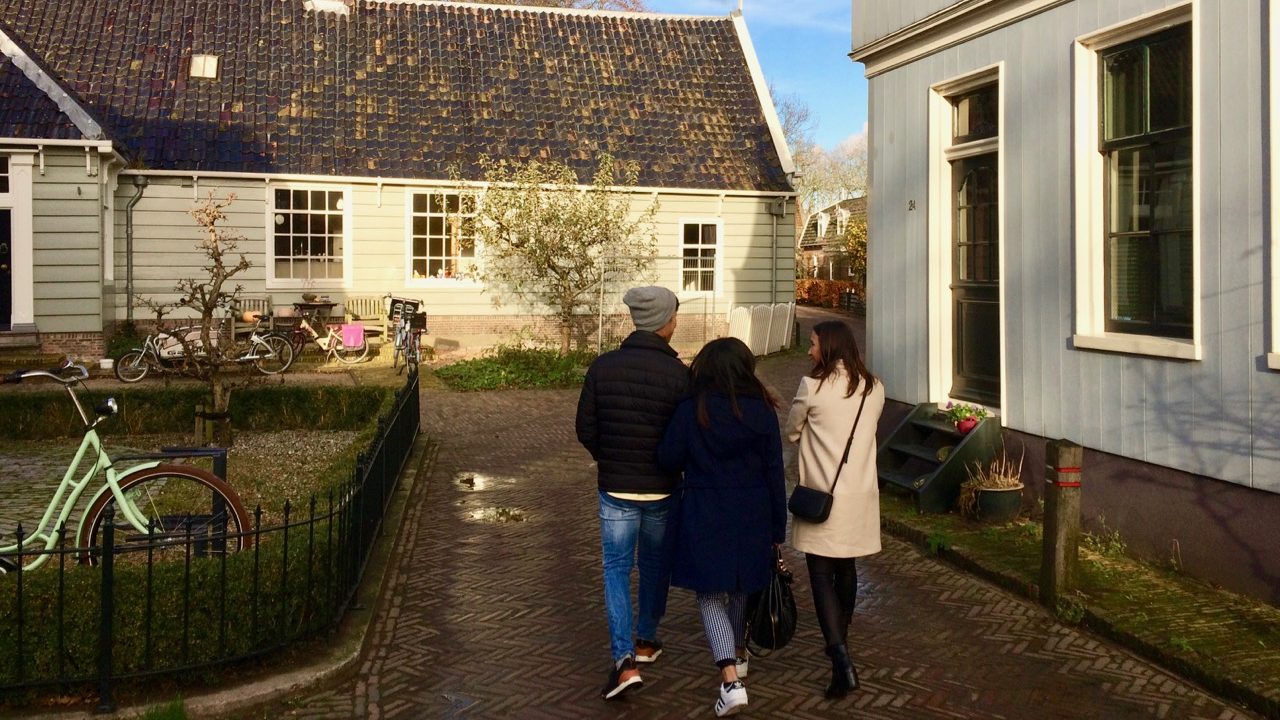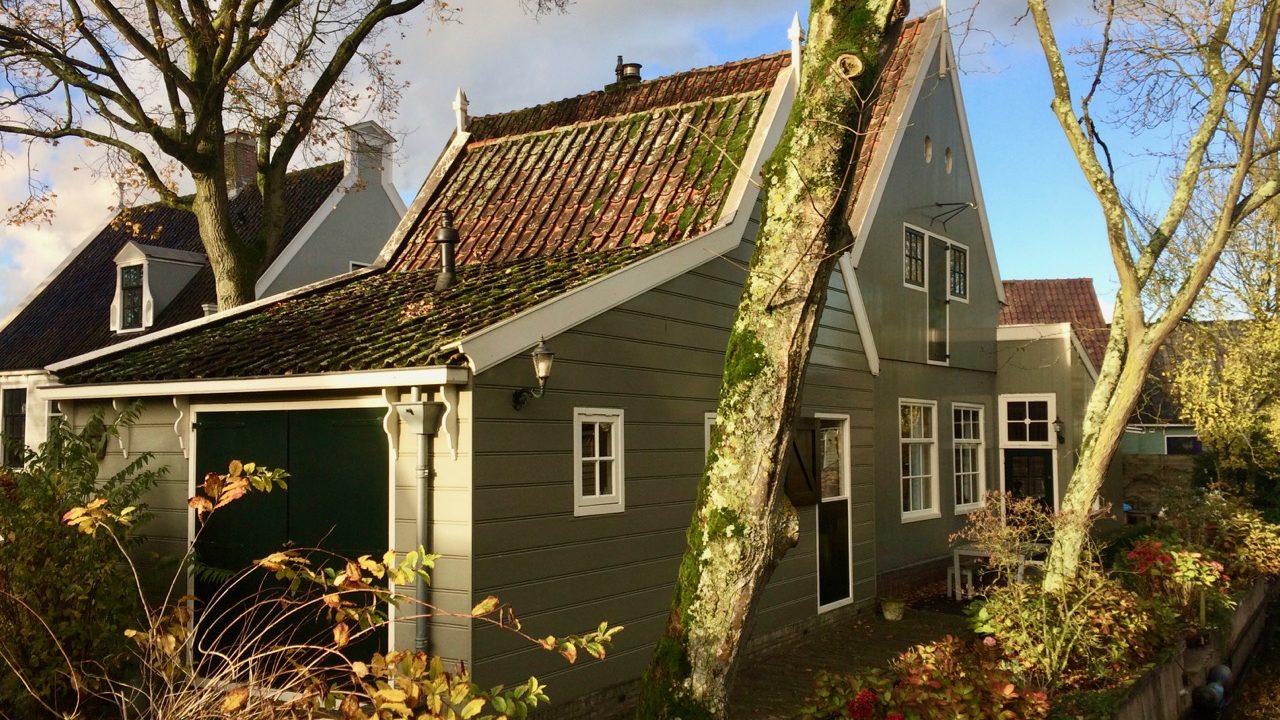Broek in Waterland
At just a short distance from Amsterdam lies the lovely village of Broek in Waterland. Surrounded by water, Broek is one of the most beautiful places of Holland, comparable with famous Dutch ‘water villages’ like Giethoorn.
Broek in Waterland is one of the stops on our Countryside & Windmills half day tour. Now a quiet and rural village with no more than 2500 inhabitants, in the seventeenth century Broek in Waterland used to compete with mighty Amsterdam. It had a very deep harbour (twenty meters deep at some point), allowing big East India vessels to dock here.
Old wooden houses
The most striking sight in Broek in Waterland are the old wooden houses. They are painted in primer, making Broek in Waterland a village with ‘fifty shades of gray’. These pretty houses preserve their original details, like ceremonial doors (used only for marriages and funerals), carved and colorful lintels (a way of identifying a house before the invention of house numbers) and stone tiles on the chimney (to prevent witches from flying in, true story).
Spice trade
The centerpiece of Broek is the magnificently restored sixteenth century church. The floor is paved with the tombstones of the rich inhabitants of Broek in Waterland, like Neeltje Pater. She owned two trading vessels and was one of the largest shareholders of the Dutch East India Company, the Vereenigde Oostindische Compagnie. The VOC (the first multinational in the world) traded in spices like pepper, nutmeg and cinnamon and made a fortune with these precious commodities.
Hidden fortune of Neeltje Pater
In Broek in Waterland you still can see Neeltje Paters house, and the harbor where she supposedly threw her fortune into, enraged after one of her ships came back from the Indies with nothing but worthless apples. The harbor has been dredged to find this fortune of 600.000 Dutch gold guilders, but so far no luck.
Some say there’s lots more money hidden away, in places like the Bank of England. Every now and then there are still people coming forward claiming to be her rightful descendant. Even centuries after her death, the search for Neeltje Pater’s inheritance is ongoing.
Holiday village
After the harbour became cut off from the sea, Broek in Waterland became a popular holiday village for rich people from Amsterdam wanting to escape the oppressive heat and stench of the big city in summertime. Sea captains, merchants and bankers had their holiday home here. On the waterfront they build beautiful teahouses, where they would receive guests and discuss business.
Broek in Waterland became known as the richest village of Holland, famous for the obsessive cleanliness of the housewives. In the eigheenth and nineteenth century it attracted many travellers and celebrities. Like Emperor Napoleon, who visited Broek in Waterland in 1811. He was very polite and even took off his shoes before walking into a house. At one house he was stopped by the maid from entering, because she just started mopping the hallway. The mighty Emperor had to wait for the floor to dry.
| Country name | the Netherlands |
|---|



